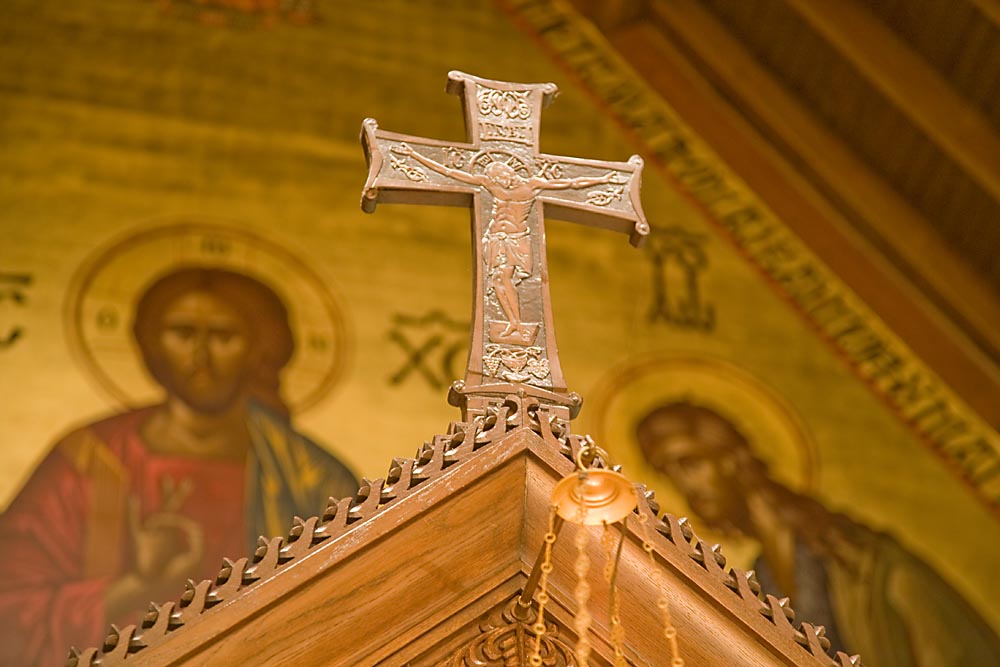| Orthodoxy |
Orthodoxy is one of the three main directions in Christianity (along with Catholicism and Protestantism), which developed in the first millennium from the birth of Christ on the territory of the Eastern Roman Empire (Byzantium).
What Eastern Christianity is now called Orthodoxy, to which about 20 Local Churches belong. Orthodoxy is not “different” from Christianity, it is a part of it. Therefore, a believer can say about himself "I am a Christian", or clarify: "I am an Orthodox Christian." This speaks of his belonging to Eastern Christianity. The Orthodox Christian faith is that faith “handed once to the saints” (Jude 3), passed on to the apostles by Jesus Christ, and then handed down from one generation to the next within the Church, without adding anything or taking anything away. The word Orthodoxy is a translation of the Greek word ὀρθοδοξία Orthodoxia. This word has two parts. The first part ὀρθός (Ortho) in translation from Greek means "direct", "correct". The second part of δόξα (doxa) in translation from Greek means "knowledge", "judgment", "opinion", as well as "radiance", "glory", "honor". These meanings complement each other, for the correct opinion in religion presupposes the correct praise of God, and, as a consequence, participation in His glory. In the latter sense ("glory"), the word doxa occurs most frequently in the New Testament. For example, the Savior “received from God the Father glory (Greek doxa) and honor” (2 Pet. 1:17), was “crowned with glory (Greek doxa) and honor through the suffering of death” (Heb. 2: 9), “ on the clouds of heaven with power and glory (Greek doxa) great "(Luke 21:27), a Christian must be transformed" into the same image from glory (Greek doxa) to glory "(2 Cor. 3:18)," for Yours is the kingdom and power and glory (Greek doxa) forever ”(Matthew 6:13). Therefore, the word Orthodoxia is translated as Orthodoxy. The term "orthodoxy" appears since the 4th century. This is what the Eastern Christians have historically called themselves. The formation of such a name is explained by the peculiarities of the life of the Church in the eastern part of the Roman Empire: it was here that for the most part heretical teachings arose questioning the basic dogmas of the faith and all 7 Ecumenical Councils took place here. In polemicizing with those who deviate from Christianity, the holy fathers naturally spoke of their position as “correct,” that is, “orthodox,” as opposed to heretical. The name gradually became entrenched in Eastern Christianity as such, since for at least 400 years, the struggle against false teachings was an important church activity of this part of the one Church. The concept of Orthodoxy includes three interrelated parts. First, the word Orthodoxy has a doctrinal meaning. Orthodoxy should be understood as a pure, integral and undistorted Christian teaching, manifested in church dogmas. In a dogmatic sense, the Orthodox teaching opposes all heresies as distortions of Christianity and reflects the fullness of theology of God, accessible to the human race. In this sense, the term Orthodoxy is found already in the writings of apologists of the 2nd century (in particular, Clement of Alexandria). Secondly, the word Orthodoxy has an ecclesiastical or ecclesiological meaning. Orthodoxy should be understood as a community of autocephalous Christian local Churches that have eucharistic communion with each other. Thirdly, the word Orthodoxy has a mystical meaning. Orthodoxy should be understood as the Christian spiritual practice (experience) of knowing God through the acquisition of the Divine grace of the Holy Spirit, which saves and transforms (deifies) a person. All three meanings of Orthodoxy are interconnected and are inconceivable one without the other. The Orthodox faith has as its source mystical experience and is taught in the Church of Christ. The Orthodox Church presents one dogmatic creed based on one mystical experience. Orthodox mystical experience is expressed in the doctrine kept by the Church. |
